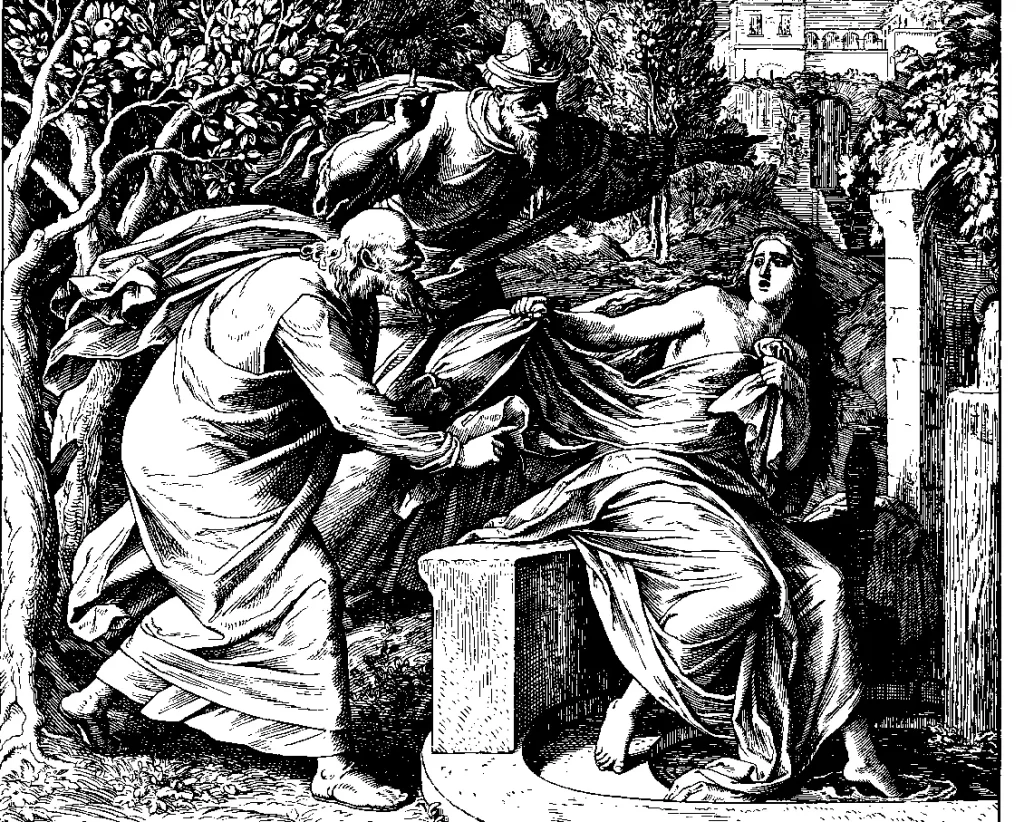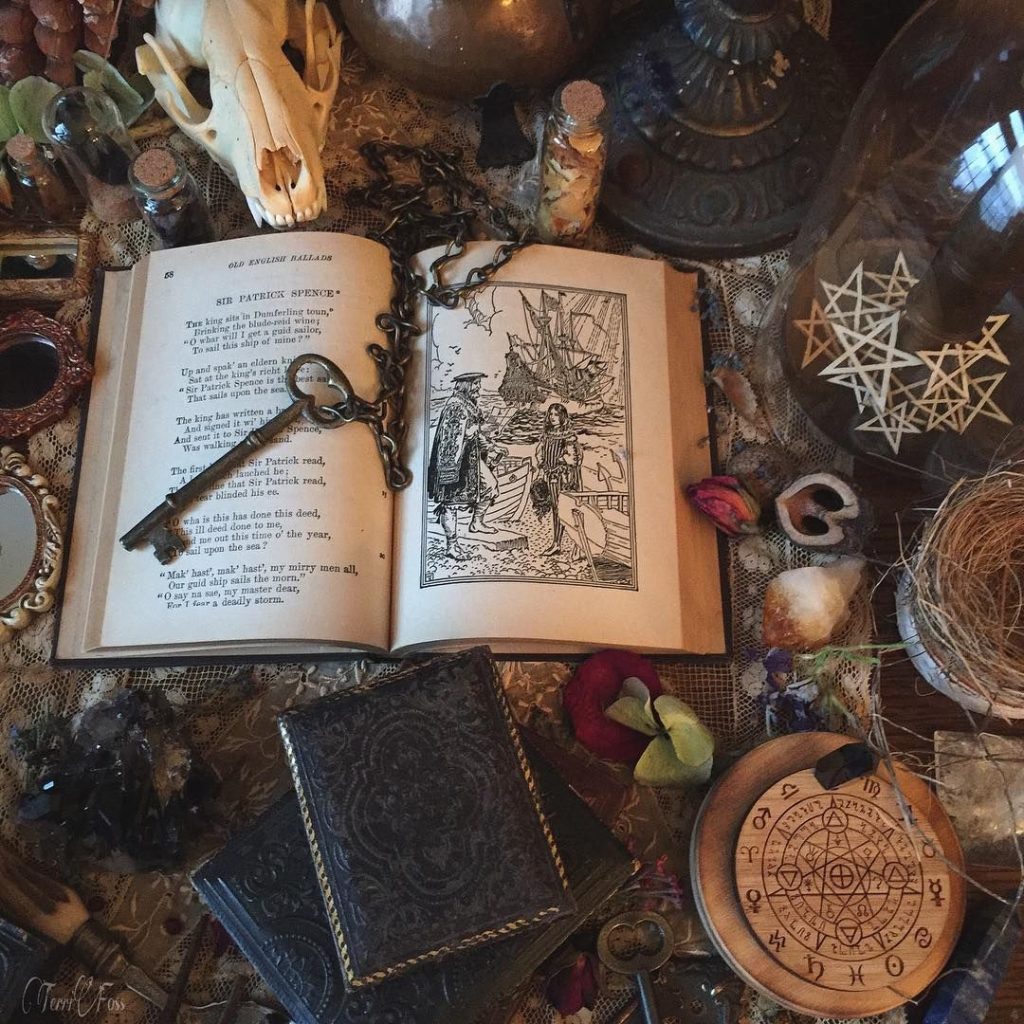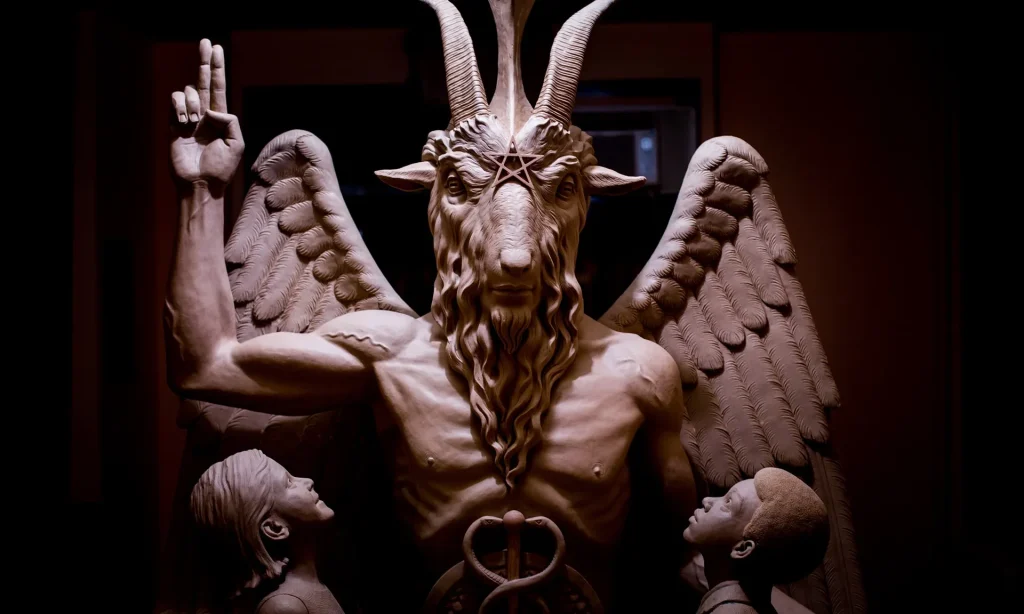The term “witchcraft” appears in various translations of the Bible, and its meaning can vary depending on the context and the specific translation used. In the Old Testament, the Hebrew word often translated as “witchcraft” is “kashaph” (כָּשַׁף), which refers to practices associated with sorcery, magic, or divination.
Here are a few passages from the Bible that mention witchcraft or related practices:
Historical Context:
Understanding the cultural and societal beliefs surrounding magic and witchcraft during biblical times
Magic and witchcraft were deeply intertwined with cultural and societal beliefs during biblical times. The people of that era believed in the existence of supernatural powers and sought guidance from divine entities for their daily affairs. However, the Bible strongly condemned the practice of witchcraft, as evident in various verses such as Exodus 22:18 which states, “You shall not permit a sorceress to live.” This shows the severity with which witchcraft was perceived, highlighting the cultural and religious significance attached to it.
Within this historical context, the Bible addresses the topic of witchcraft with a stern tone, aiming to dissuade individuals from engaging in such practices. Several verses express disdain for witchcraft, emphasizing the importance of faith in God and discouraging any form of divination or sorcery. The cultural belief system of that time placed great emphasis on the power of the divine and considered any other supernatural practices as contradictory to the worship and trust in God. The strong stance against witchcraft in the biblical texts gives us a glimpse into the moral and ethical standards upheld by the people of that era, providing us with a deeper understanding of their cultural and societal beliefs.

Forbidden Practices:
Examining the passages in the Bible that explicitly denounce witchcraft and divination
Witchcraft in the Bible has long been considered a forbidden practice, explicitly denounced in various passages. These biblical texts condemn the use of sorcery, divination, and any form of magical manipulation.
In Deuteronomy 18:10-12, for example, the Israelites are warned against participating in acts such as casting spells, consulting mediums, or seeking out fortune tellers. The emphasis placed on distancing oneself from witchcraft reflects the strong religious beliefs and values held during biblical times.
Throughout the Bible, witchcraft is portrayed as contrary to God’s will and an affront to His authority.
In passages like Exodus 22:18, where it states, “You shall not permit a sorceress to live,” the seriousness of engaging in such forbidden practices is underscored. The use of witchcraft is seen as a direct challenge to God’s sovereignty and a form of idolatry. These explicit denunciations aimed to establish a clear moral stance against any form of magical or supernatural manipulation, affirming the importance of a devout and faithful relationship with God.
Witchcraft Terminology:
Identifying the different Hebrew and Greek words used in the Bible to describe witchcraft and related practices
The Bible contains numerous references to witchcraft and related practices, employing different Hebrew and Greek words to describe them. One such term is “kashaph” in Hebrew, which is often translated as “witch” or “sorcerer.”
In Exodus 22:18, for instance, we find the verse, “You shall not allow a witch to live.” Here, “kashaph” refers to someone who uses witchcraft or sorcery to harm others. Similarly,
in Deuteronomy 18:10-12, the use of “mekhashephah” denotes one who practices divination, casts spells, or practices witchcraft. These biblical verses highlight the negative stance towards witchcraft, emphasizing the prohibition and condemnation of such practices.
In the New Testament, the Greek term “pharmakeia” is often associated with witchcraft and sorcery. This term, which is transliterated as “pharmacy” in English, refers to the use of drugs or potions for magical purposes.
Galatians 5:20 includes “pharmakeia” in its list of works of the flesh, aligning it with other harmful activities. Thus, the Bible remains consistent in its stance against witchcraft and provides specific terminology to describe these forbidden practices. Understanding the meaning and context of these words allows us to further explore the biblical perspective on witchcraft and related activities.
Witchcraft in the Old Testament:
Exploring specific instances of witchcraft, sorcery, and divination mentioned in the Hebrew Scriptures
Witchcraft, sorcery, and divination have been topics of interest throughout biblical times, as evidenced by numerous mentions in the Hebrew Scriptures. One such passage is found in Exodus 22:18, where it is written, “Do not allow a sorceress to live.” This Bible verse on witchcraft highlights the strong condemnation of such practices within the ancient Hebrew society.
Another example of witchcraft in the Old Testament can be found in the book of 1 Samuel. In chapter 28, King Saul, desperate for guidance and fearing the impending battle with the Philistines, seeks out a medium, despite the explicit prohibition against such practices in the Mosaic Law. This account demonstrates the allure and danger associated with engaging in witchcraft and divination, even for the most powerful individuals of the time.
Throughout the Hebrew Scriptures, instances of witchcraft, sorcery, and divination serve as cautionary tales, illustrating the consequences of straying from the righteous path. These examples allow us to delve deeper into the cultural and societal beliefs surrounding white magic during biblical times, shedding light on the significance of these forbidden practices in the ancient Hebrew world.
Witchcraft in the New Testament:
Analyzing references to witchcraft and dark arts in the teachings of Jesus and the early Christian writings
The New Testament provides several references to witchcraft and dark arts, shedding light on the early Christian perspective on these practices. Jesus and the early Christian writings offer insights into the stance taken by the early believers in relation to witchcraft. These references allow us to analyze and understand the meaning of witchcraft in the Bible through the lens of the teachings of Jesus and the writings of the early Christians.
In the teachings of Jesus, witchcraft is portrayed as a forbidden practice that goes against the will of God. Jesus consistently emphasizes the importance of following and obeying God’s commandments, warning against engaging in any form of witchcraft or dark arts. By addressing witchcraft, Jesus underscores its potential to lead individuals away from God’s truth, highlighting the dangers associated with such actions. The early Christian writings also align with this perspective, further emphasizing the negative implications of witchcraft in the biblical context. Understanding these references helps provide a comprehensive picture of the meaning and significance of witchcraft in the Bible.
Divine Intervention:
Discussing instances where God directly addresses witchcraft and demonstrates His superiority over pagan practices
Instances of divine intervention addressing witchcraft can be found throughout the pages of the Bible. These accounts serve to underscore God’s stance on the practice and highlight His power and authority over pagan practices. In the book of Exodus, for example, God commands Moses to confront the Egyptian magicians and prove that His power far surpasses theirs.
Through a series of miracles, Moses demonstrates the futility of their witchcraft and displays the superior might of God. For modern seekers, these stories often raise deep questions about How To Do Witchcraft in a way that honors personal faith while respecting spiritual boundaries. Some Christian witches interpret these accounts not as rejections of all magical practice, but as lessons on humility, divine alignment, and the dangers of misusing power. Within this framework, Forgiveness Spells and Rituals take on a vital role—providing a way to reconcile with biblical teachings, release guilt or fear instilled by doctrine, and approach one’s craft with a spirit of peace, reverence, and integrity.
Another notable instance occurs in the book of Acts, where the apostle Paul encounters a sorcerer named Elymas. Elymas opposes Paul’s teachings and attempts to mislead others from finding faith in Christ. In response, Paul, guided by the Holy Spirit, rebukes Elymas and temporarily blinds him. This dramatic intervention from God not only confronts the practice of witchcraft but also serves as a powerful demonstration of His authority and sovereignty.
Throughout the different books and stories of the Bible, we see time and again how God directly addresses witchcraft, divination, and other forms of pagan practices. These accounts not only showcase His disapproval of such practices but also reiterate the superiority of His power over anything the world has to offer. As believers today, we are reminded of the need to trust in God’s supremacy and seek His guidance rather than resorting to practices condemned by His word.
Witchcraft vs. Miracles:
Differentiating between acts of witchcraft and the supernatural miracles performed by biblical figures
Acts of witchcraft and supernatural miracles performed by biblical figures can often be confused due to their seemingly similar outcomes. However, there is a distinct difference between the two. In the Bible, witchcraft holds a negative connotation, representing the use of dark arts and manipulation for personal gain or harm. It goes against the teachings of God and is explicitly condemned in various passages. On the other hand, supernatural miracles performed by biblical figures are acts of divine intervention and display the power and authority of God. These miracles serve a higher purpose and are aligned with God’s will and plan for His people. While both witchcraft and miracles may manifest extraordinary phenomena, their intents and origins differentiate them significantly within the context of the Bible.
Understanding the meaning of witchcraft in the Bible is essential in discerning its contrast with supernatural miracles. The Hebrew and Greek words used to describe witchcraft convey notions of sorcery, divination, and the use of occult practices. These practices were not only forbidden but also seen as an affront to God’s authority. In contrast, supernatural miracles performed by biblical figures are characterized by divine authorization and imparted through the power of God. These miracles, such as the healing of the sick, the multiplication of food, and the raising of the dead, serve as evidence of God’s presence and His ability to accomplish the impossible. They reinforce faith in God’s sovereignty and His ability to intervene in human affairs, demonstrating a clear distinction from acts of witchcraft.
Witchcraft and Prophecy:
Examining the role of prophets and seers in biblical times and how they differ from practitioners of witchcraft
Prophets and seers played a significant role in biblical times, acting as intermediaries between God and the people. These individuals were chosen by God to deliver His messages and provide guidance to His people. Unlike practitioners of witchcraft, who sought to manipulate supernatural forces for personal gain, prophets and seers relied solely on their connection with God and His divine revelations.
One key distinction between prophets and practitioners of witchcraft lies in their intentions. Prophets were motivated by their obedience to God and their desire to fulfill His purposes on earth. Their messages were centered on promoting righteousness, repentance, and faithfulness to God’s laws. On the other hand, practitioners of witchcraft sought to exert control and power over others through the use of dark arts and manipulation of supernatural forces. Their practices were rooted in greed, self-interest, and the pursuit of personal gain.
Overall, the role of prophets and seers in biblical times was one of spiritual leadership and guidance, while the practice of witchcraft represented a deviation from God’s will and His desire for His people to seek Him alone. Understanding this distinction sheds light on the significance of prophecy as a divine gift and the dangers associated with dabbling in practices that oppose God’s commands.





